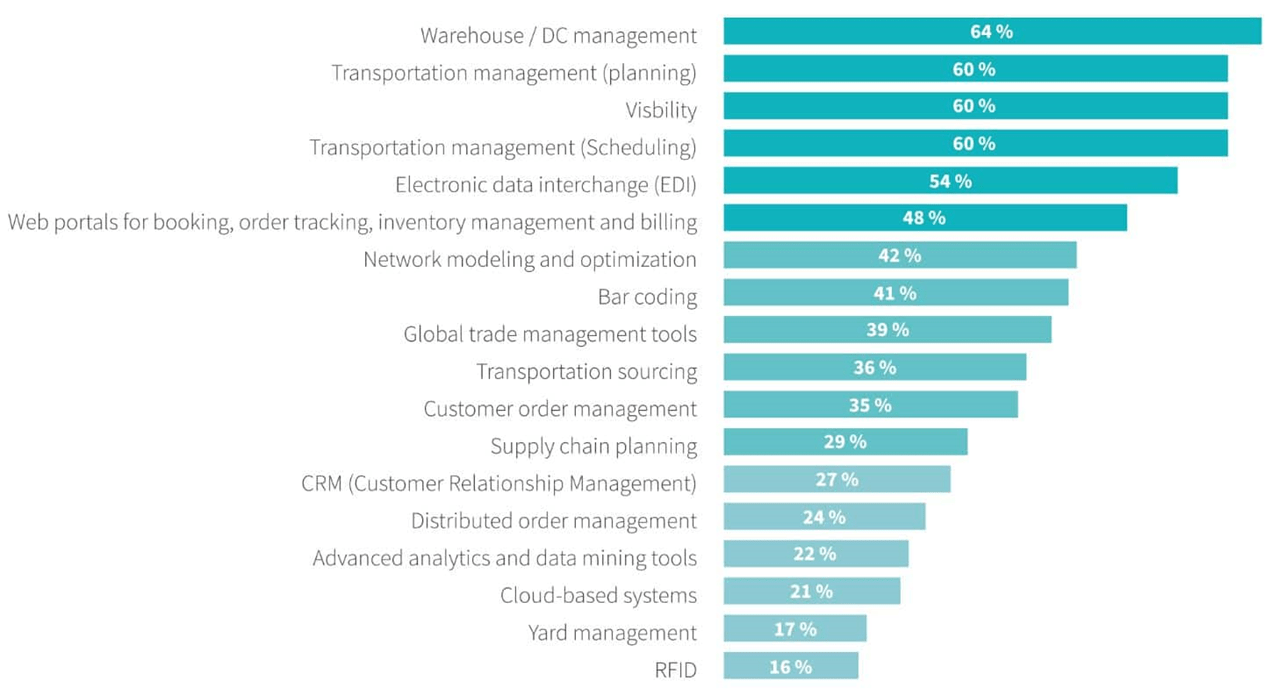
E-Invoicing and Its Geopolitical Stakes
France’s electronic invoicing reform relies on a Y-architecture, where Partner Dematerialization Providers (PDPs) play a central role in issuing and…
Generix Announces the Appointment of Olivier Vaillancourt as General Manager for North America View the press release

It’s now clear that consumer expectations are changing at a much faster pace than ever before, especially in the B2C arena. The pandemic has made us realize that market evolution, while already familiar to industry professionals, can be much faster and more demanding than we might think, but undoubtedly irreversible.
Companies are faced with the challenge of adapting their distribution and production models to align their operations with the changes taking place. Being equipped with greater agility, efficiency and transparency is no longer a simple competitive advantage. Every day, new competitors emerge who are well prepared in terms of technology and perfectly able to manage new challenges. Relying on a 3PL capable of offering efficient, robust, and scalable solutions becomes a primary need.

Connectivity
The 3PL must be part of a logistics ecosystem capable of ensuring integration between customers and suppliers. Only in this way can it guarantee the visibility that is essential for a supply chain capable of offering a high-quality service to the end customer.
Collaboration between different partners is an added value for the logistics chain and avoids one of the endemic evils that have always afflicted the supply chain: the interruptions in the exchange of information. Having an integration platform to manage the electronic exchange of data has become an indispensable factor for today’s logistics operators.
On the other hand, it is important that the warehouse management system be capable of integrating with external automated tools, such as sorters, automated guided vehicles (AGVs), RFID, pick-to-light, robots for automated picking, and all solutions that optimize a wide range of processes within the warehouse.
Finally, it is important to emphasize the ability of logistics to provide visibility, both internally and externally, by making use of tools such as collaborative portals, where information related to warehouse operations and shipment tracking can be consolidated. In this case, through connectivity with transportation companies or mobility apps.
Intelligence
The 3PL must have access to information about the client’s operations so that they can make thoughtful decisions and direct interventions toward improving operations based on real and accurate data.
The information also speeds up the billing process for logistics services with tools that collect billable items and issue invoices in EDI or any other format.
Scalability
The 3PL needs to focus on Software as a Service (SaaS) tools. Businesses and markets can change in a matter of months, so it is essential to be able to adapt quickly. A SaaS operating model allows for scalability, but it also reduces “time to market” by allowing various information systems to be integrated in a shorter timeframe.
Speed
The 3PL must be able to respond in moments of peak activity.
Logistics has become an increasingly short delivery time, so it is essential to react quickly, not only to manage peaks in activity, but also to be able to adapt with agility to the different ways of preparing orders. In this sector, warehouse management software is an essential tool for achieving the degree of planning and process automation necessary for the rapid and efficient execution of activities.
Technology has now been implemented within the entire supply chain, and the technology is advancing rapidly. Current logistics operators are aware of this, just as they know that present and future economic investments will have to go in that direction if they want to remain in the market and compete with new operators, who are starting with the best technology.
A bit like a race where you never reach the finish line, in the future technologies will evolve and shift to Big Data, Artificial Intelligence and Machine Learning. Technologies that will profoundly transform logistics and, more importantly, allow whoever adopts them to have an advantage in quality and an unbeatable positioning. Providing the customer with a plus in service, such that they do not have to resort to strategies based solely on prices, which are the biggest threat to the profitability of the logistics sector.
Tools that can bring tremendous value to the supply chain are the adoption of a control tower that can provide greater visibility across the chain, the use of blockchain, automated warehouses and robots to manage repetitive tasks such as warehousing, order picking, and arranging goods on the loading docks.
The Generix Supply Chain Hub platform, which is offered in SaaS format allows logistics operators to manage the supply chain in an integrated and efficient way through its various tools, which have already been mentioned throughout the article.
Warehouse Management System
Recognized in Gartner’s Magic Quadrant, it responds precisely to the needs of the main sectors of activity (retail, eCommerce, automotive, beverages, food…) by providing the flexibility and configuration power demanded by logistics operators. Generix WMS allows to manage multi-warehouse and multi-customer operations through a tool with a complete standard functionality. Thanks to its more than 30 years of experience in the market, Generix offers solutions for the management of e-commerce flows, the invoicing of logistics services or the connection with automated systems.
Technology is the bet that the most competitive 3PL companies are making to keep up with market demands and to be able to meet their customers’ expectations. We are facing a difficult but exciting change that will undoubtedly transform the logistics sector in a very short time.
Generix Group North America provides a series of solutions within our Supply Chain Hub product suite to create efficiencies across an entire supply chain. Our solutions are in use around the world and our experience is second-to-none. We invite you to contact us to learn more.

France’s electronic invoicing reform relies on a Y-architecture, where Partner Dematerialization Providers (PDPs) play a central role in issuing and…

The B2B mandate in Germany, set to take effect on January 1, 2025, marks a crucial step in the European…

Following the October 15 announcement regarding the abandonment of the PPF development, the DGFIP and its partner AIFE are ramping…

Work with our team to build your ideal supply chain software stack and tailor it to your unique business needs.